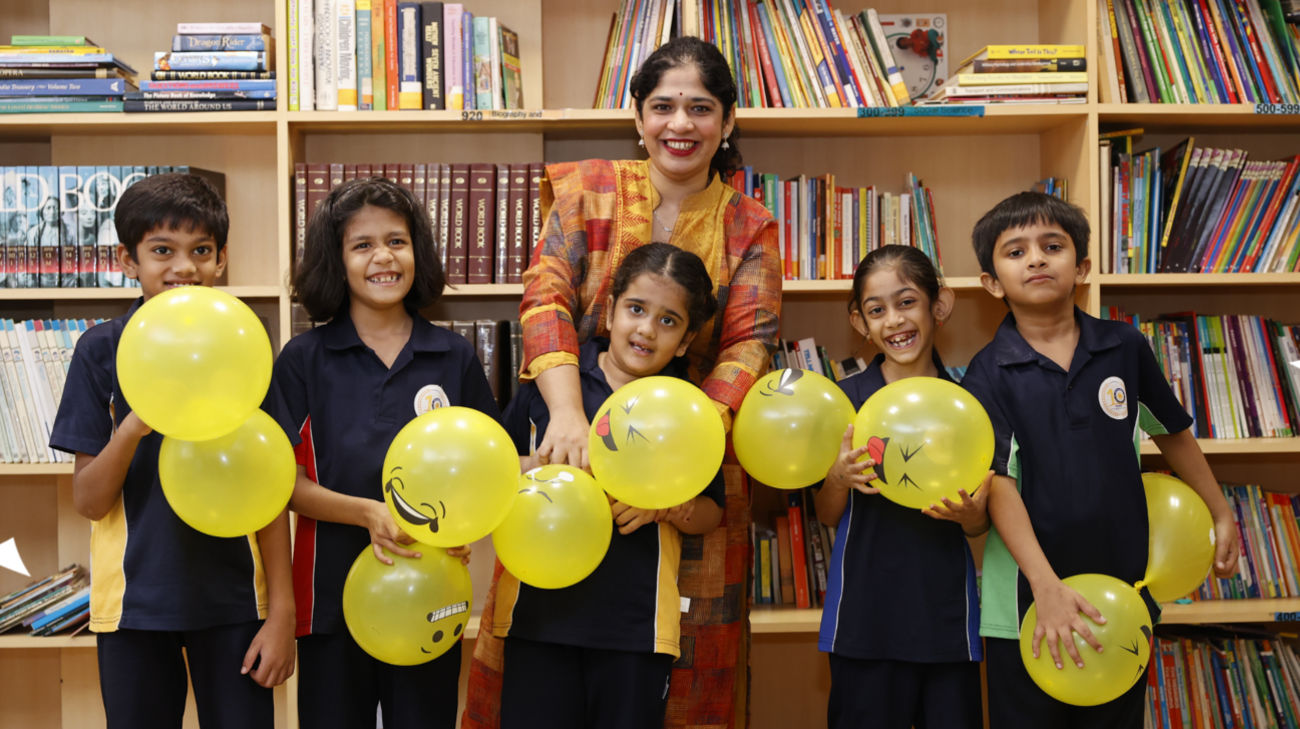

In the field of education, academic achievement is often considered the primary marker of success. The focus on reading, writing, and numeracy forms the core of most curricula, and while these skills are undoubtedly crucial, they don’t tell the full story, especially in the context of special education. For children with learning differences, the path to growth and fulfillment is rarely linear, and it certainly can’t be defined by academic milestones alone.
At The Aditya Birla Integrated School (TABIS), we believe in a holistic approach to education—one that recognizes and nurtures each child’s unique potential through a well-rounded, inclusive, and life-affirming model. While academic excellence remains important, equal emphasis is placed on the integration of arts, movement, and life skills, which play an essential role in emotional, social, and cognitive development.
Let's explore how these elements work together to empower learners with special needs and prepare them for meaningful, independent lives.
When we talk about education in special needs contexts, we must widen our lens. Children with learning difficulties, developmental delays, or sensory challenges often require alternative methods of engagement and expression. The development of life skills, physical coordination, emotional regulation, and self-expression is just as vital-if not more-for these learners to thrive both inside and outside the classroom.
Research and educational best practices show that multisensory and experiential learning approaches provide significant benefits for children with diverse learning needs. Integrating arts, physical movement, and life skills into the curriculum is not just a supplementary activity-it is central to creating inclusive, empowering learning environments.
Visual and performing arts—such as music, dance, theatre, and painting—are powerful tools for students with special needs. Many children with learning differences, autism, or speech and language impairments struggle with verbal communication. Artistic expression offers them an alternate, non-verbal outlet to communicate feelings, explore identity, and build self-confidence.
At TABIS, students are exposed to structured and exploratory art sessions where they are encouraged to create freely. These sessions are designed to support:
Art therapies and expressive art workshops also provide therapeutic value, helping children relieve anxiety, reduce behavioral challenges, and discover hidden talents that may not emerge through academics alone.
Physical movement is far more than just playtime. For children with special needs, it is a vital part of neurological development. Yet, in traditional academic settings, movement often takes a backseat to seated classroom learning. That's a missed opportunity.
Incorporating yoga, dance, adapted physical education, and drama-based movement activities helps students:
At TABIS, our integrated curriculum includes movement breaks, sensory circuits, and kinesthetic learning methods to ensure that physical activity is not only included but celebrated. We understand that movement-based learning helps many children absorb and retain information more effectively than static learning methods.
Moreover, physical activities also promote emotional regulation. Practices like yoga and breathing exercises are particularly useful for children with ADHD, autism, or anxiety-related conditions, helping them stay calm, grounded, and ready to learn.
Perhaps the most functional and transformative component of special education is life skills training. These are the everyday abilities that most people take for granted—personal hygiene, meal preparation, time management, money handling, and communication skills but for children with special needs, they often require deliberate instruction, patience, and practice.
At TABIS, life skills are woven into the daily routine. Through simulated environments and real-life scenarios, students learn how to navigate the world confidently. Activities include:
These structured learning opportunities empower students to become more self-reliant and socially adaptable, which in turn builds their self-esteem and sense of purpose.
To truly unlock the potential of every learner, it is critical to create an inclusive, accepting, and supportive environment. TABIS is designed to be that safe space - a school where children are not just taught, but understood and celebrated.
Our classrooms are built on small teacher-student ratios, personalized instruction plans, and the consistent presence of therapists, special educators, counselors, and occupational therapists, working together to nurture every facet of a child’s development.
By blending academics with creative therapies, physical education, and practical skills, we promote a multi-dimensional model that caters to the whole child—body, mind, and spirit.
Special education isn’t just about overcoming challenges. It's about recognizing strengths, nurturing joy, and preparing children to lead fulfilling lives - academically, socially, and emotionally.
The integration of arts, movement, and life skills into the curriculum does more than enhance learning - it provides healing, builds identity, and fosters independence. It ensures that children with special needs are not left behind, but are given equal opportunity to thrive on their own terms.
At The Aditya Birla Integrated School (TABIS), this philosophy is at the heart of everything we do. We believe that by focusing not just on what children need to learn, but how they learn best, we can unlock potential that goes far beyond academics.